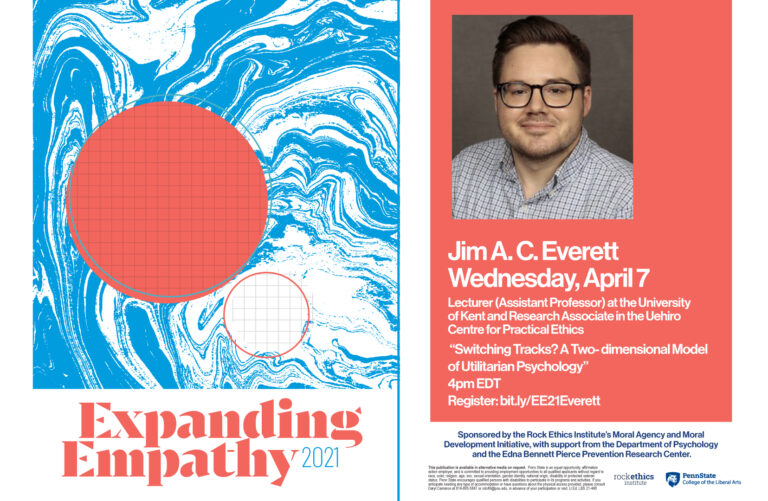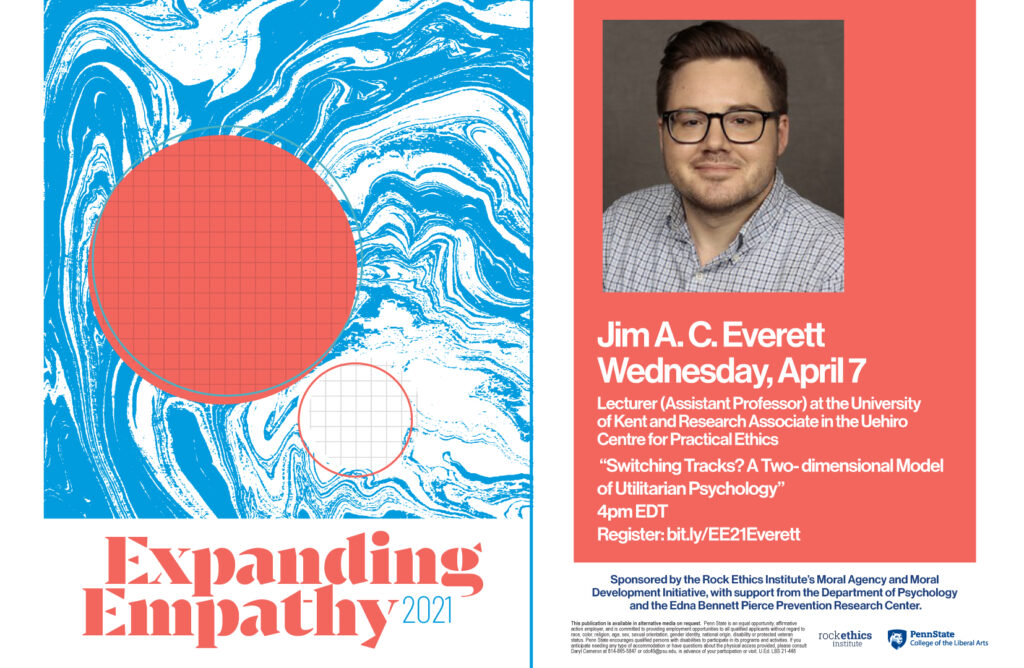Lecture title: "Switching Tracks? A Two-Dimensional Model of Utilitarian Psychology"
Abstract: A great deal of work in moral psychology has used sacrificial trolley-style dilemmas to shed light on the psychological processes and individual differences associated with “utilitarianism.” Such work has yielded important insight into our understanding of instrumental harm, but there are other—more prototypical—ways in which utilitarianism, as an ethical theory, departs from common sense moral intuitions. While utilitarianism permits harming innocent individuals when this maximizes aggregate utility (instrumental harm), it also tells us to treat with equal importance the interests of all individuals affected, without giving priority to oneself or those to whom one is especially close (impartial beneficence). While more fundamental to the utilitarian ideal, such impartial beneficence has received scant empirical attention. I will present work showing that these dimensions are not merely conceptually distinct but empirically distinct, presenting research documenting distinct patterns of individual differences, evidence they are underpinned by different processes, and work (including from a large-scale international study in the COVID-19 pandemic) showing they have distinct consequences for social evaluation. If we wish to understand proto-utilitarian psychology—and especially if we want to draw normative conclusions from such work—it is crucial to adopt a multidimensional approach, looking at both instrumental harm and impartial beneficence.
Please register here: bit.ly/EE21Everett


Occurrences
-
Wednesday, April 7, 2021, 4:00 p.m.–5:00 p.m.